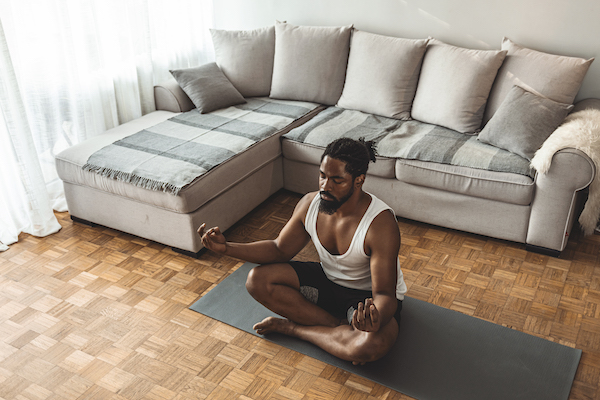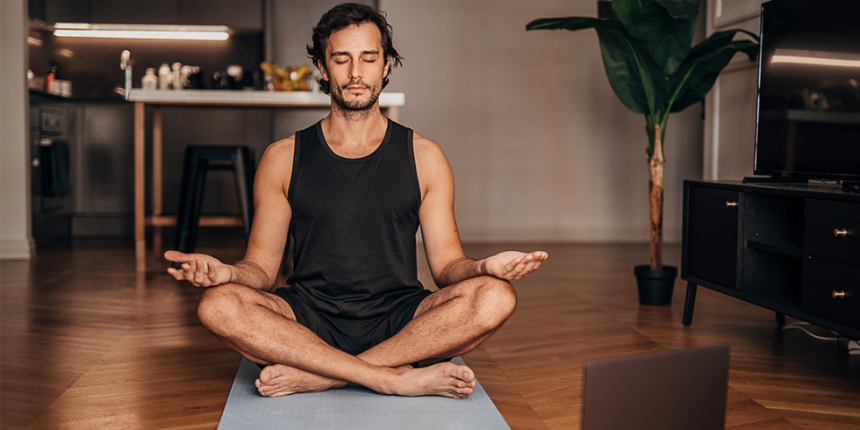Let’s get one thing straight right away: You should meditate as often as you like and as often as it fits into your schedule.
When trying to set up a meditation practice, “it’s important to be realistic with ourselves and our schedules. Otherwise we just end up not doing it at all,” explains yoga and meditation teacher Paige Allia, RYT 500.
If you’re looking for a hard-and-fast goal, “most research on meditation is based on 20-minute sessions once a day for six to eight weeks,” explains meditation teacher Paul Harrison — but don’t beat yourself up if life gets in the way.
These 20 minutes don’t have to be sitting meditation time, either. Allia sometimes starts beginner clients on walking or even coloring meditations, and combining meditation and exercise is just one tip for making daily meditation easier.
Can You Meditate Too Much?

A prolonged meditation practice hardly holds any risk to your physical health. Allia explains, however, that there have been cases of Tibetan monks meditating and fasting until they become living mummies and eventually die.
So, if you find that your meditation practice is causing you to avoid your daily responsibilities, consider cutting back. Although research on meditation side effects is still thin, one study did find that unwanted effects were more likely in people who practiced for more than 20 minutes.
Participants surveyed reported anxiety, depersonalization, stomachaches, headaches, and dizziness.
How Long Should You Meditate Per Session?
“To get most of the benefits of meditation, 20 minutes per day is ideal,” Harrison says. There’s little risk in more meditation, but there’s no benefit from staging a meditation marathon either.
So, don’t force a more extended practice in the pursuit of benefits if a 20-minute daily routine would fit better in your schedule. If you have the time to conduct longer sessions, feel free. You don’t need a study to tell you if those extra 10 minutes help you feel better and benefit your mental health.
If you’re busy enough that finding 20 minutes in your day sounds impossible, that doesn’t mean meditation isn’t for you. Like any other habit, meditation takes consistent practice, so it’s OK if you need to start with shorter sessions.
“Even one moment, or one minute, can create a shift in your mood,” says Allia. She underscores that many of us have a vision of a person sitting cross-legged — but that’s not the only form of meditation. “Perhaps the moment is three deep breaths in and out while you are buckling your kiddo into the car seat,” she suggests. “Maybe it’s finding a little quiet while on a walk in the woods.”
If you’re looking for a guided and more dedicated practice, BODi Sound Meditation videos use singing bowls and other instruments that emit soothing tones to help you relax and relieve stress. Each video is between five and 25 minutes, except the one for better sleep (and it’s more than OK if you fall asleep in the middle, since sleep is the goal).
What If My Mind Wanders?

If your mind wanders 10 minutes into your 20-minute guided meditation, that habit is not only normal but also expected. We’re all juggling dozens of concerns throughout the day. Trouble concentrating isn’t indicative of how long you should meditate.
If they leak into your meditation practice, bring your focus back to the core of your meditation, whether it’s the sound of meditation singing bowls, the feeling and rhythm of your breath, or a mantra you’ve chosen.







